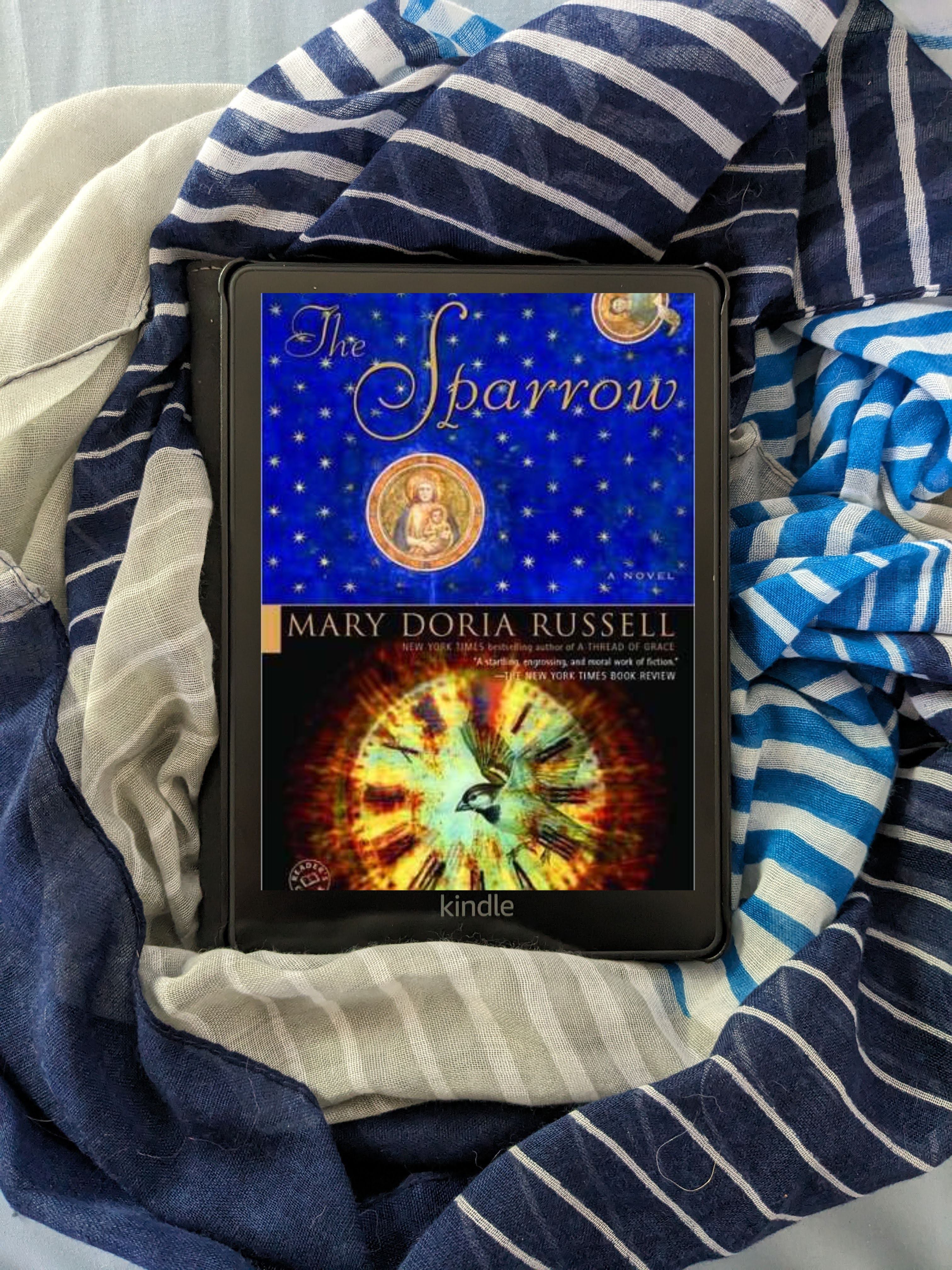The Sparrow, by Mary Doria Russell (Ballantine Books 1996)
First line: “It was predictable, in hindsight.”
My favorite read of February was a book I’ve had on my Kindle for a long time. But loooong before that, I remember seeing it on the bookshelf at my grandma’s house. She was an avid book club member in her slightly younger days — a reason, I’m sure, that she’s still whip-smart in her mid-90s — and this was one of her book club’s picks back more closely to its publication. At that point, both timelines in this dual-timeline sci-fi tale were well in the future. Today, only one of them is.
In (Russell’s) 2019, a scientist in Puerto Rico picks up evidence of an extraterrestrial race, and not just of their existence, but of their singing. Unconvinced he could be right, he gathers his friends, including Jesuit Priest, Emilio Sandoz, to verify his findings. Knowing that this information will soon send missions to space, Sandoz gathers a team of his closest people and a few other Jesuits to field their own mission to meet more of God’s children.
In 2060, Emilio Sandoz returns to Earth as the sole surviving member of his group, after being rescued by the first UN mission to Rakhat, despite their reports that he had descended into all sorts of depravity. While being treated for his numerous injuries, he is forced to recount exactly what when so wrong on Rakhat.
This book is perhaps everything I could want in a sci-fi novel. I loved the dual timeline nature of it, which built so much suspense and tension, while also allowing for moments of joy and humor in what might have otherwise been an entirely bleak story. It was also fascinating to see what Russell thought 2019 might look like, now that we are 5 years past that. The eight members of Sandoz’s team, as well as the other Jesuits he interacts with upon his return, all felt like full, relatable, people I would like to know. This is a “first contact” novel, which is a sub-genre of science fiction I didn’t realize worked so well for me. There was so much anthropological and linguistic interest as the humans met the species of Rakhat that I found fascinating. And then we have matters of faith, and subject area that regularly draws my interest in fiction, questioning issues of morality, God’s plan, and good versus evil.
My only complaint was how quickly the reader discovers the truth of what went down on Rakhat after 400+ pages of lead up, but I think that was a very conscious decision on the author’s part and I can understand it, even while I didn’t love it.
Gosh, this book is so full of heart and things to consider and I loved it immensely. I only wish I had a book club like my grandma’s to read it with.














